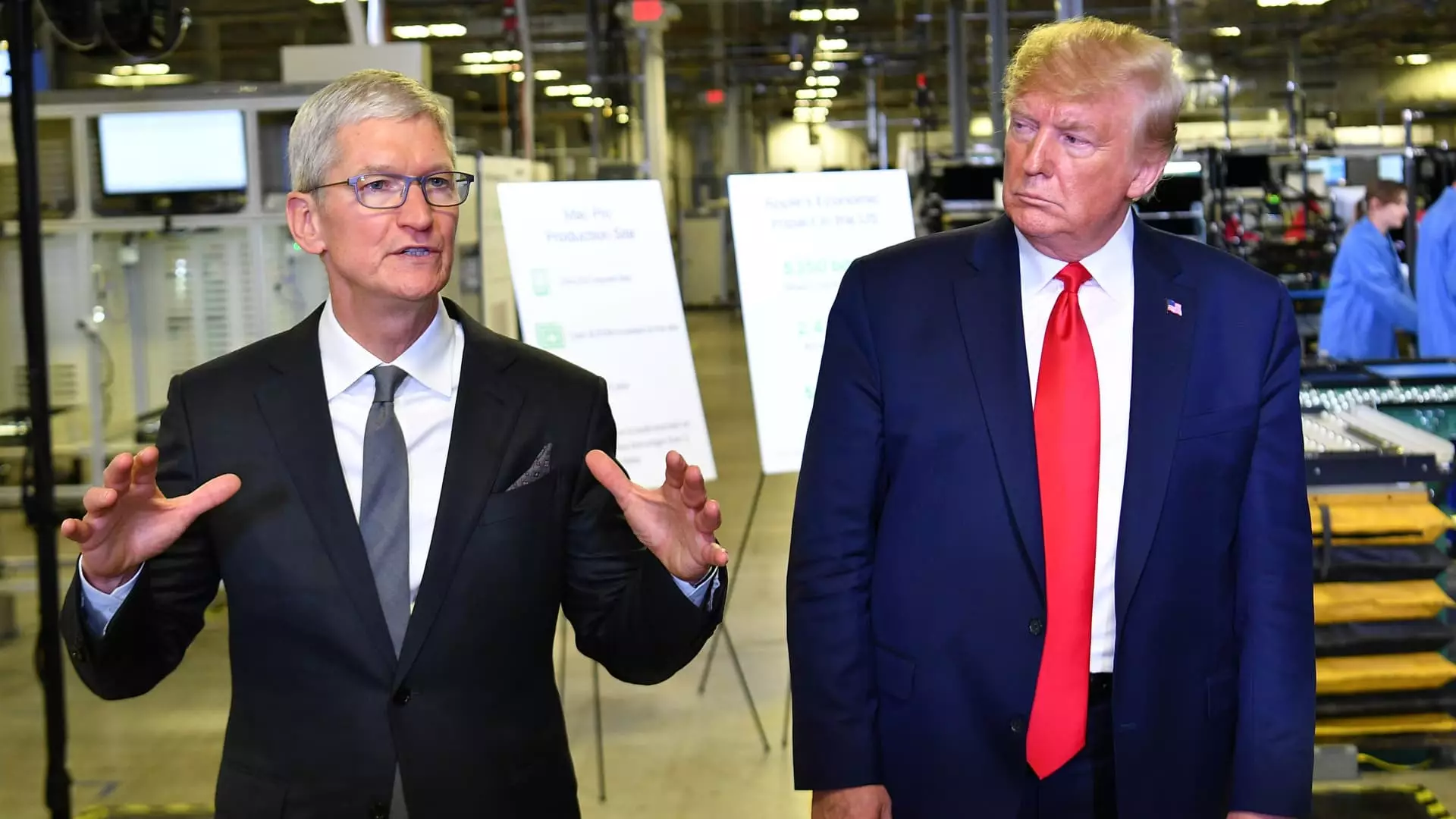In a bold move that has sent ripples through the stock market, former President Donald Trump has positioned Apple as the latest target in his ongoing trade war discussions. With a provocative social media post, he has declared that the tech giant will face tariffs of 25% or more on iPhones manufactured outside of the U.S. This incendiary statement is not just political theater; it is a vivid indication of how trade policies can be weaponized in the hands of a populist leader. Trump’s demand for Tim Cook to shift iPhone production to American soil raises questions not only about corporate responsiveness but also about the viability of such a paradigm shift in manufacturing.
The impact of this announcement was immediate and visceral, as shares of Apple tumbled by 2%. This decline betrays an underlying anxiety among investors who understand that shifting production to the U.S. would escalate costs. Estimates suggest that the price of an American-made iPhone could soar to an outrageous $3,500—far beyond the current market price—and would likely leave many consumers in shock. The implications are substantial: through a simple post, Trump is nudging the economy towards an artificial inflation of one of the most beloved products in the world.
Echo Chambers of Power
The background of this conflict is populated by intersecting interests and alliances. Tim Cook, who attended Trump’s inauguration and contributed a whopping $1 million to his inauguration fund, is now caught in a precarious bind. The White House meeting mentioned in Politico might suggest an attempt at diplomacy, yet it feels more like a guise masking the impending weight of tariffs—an ultimatum cloaked in corporate kindness.
As the Treasury Secretary mentioned the need for “precision manufacturing,” it’s clear the administration’s intentions are not purely about trade but rather about redressing America’s industrial base, particularly in sectors like semiconductors. It’s a laudable goal when framed in terms of securing supply chains; however, one must ponder the consequences of such policies. As companies like Foxconn invest substantial amounts into expanding their Indian operations, the reality of global manufacturing dynamics becomes ever more complex. Rooting for “America first” may sound patriotic, but the implications for economic competitiveness and consumer choice are indeed troubling.
Consumer Costs and Realities
What many seem to forget in the fray of trade war rhetoric is the consumer; the focal point often gets lost amidst the political grandstanding. The citizens who want an iPhone could find their options dramatically curtailed if the prices reflect the President’s tariffs. The irony is almost palpable—a product so integral to the American identity is under threat from a government intent on fostering a domestic industry that may not be financially viable. How do we reconcile a desire for homegrown production with the continuing evolution of global markets that dictate price and supply?
This situation underscores a fundamental issue in Trump’s approach to economics: he seems to regard multinational corporations as obedient entities—capable of effortlessly shifting their manufacturing bases. The truth, however, is far bleaker. As Wall Street analysts warn of skyrocketing costs for consumers, I cannot help but sense a disconnection between the political leadership and the economic realities on the ground. In seeking to punish Apple for perceived disloyalties, are we not also penalizing the millions of Americans who rely on its products?
The Uncertain Landscape Ahead
The backdrop of a slow recovery in demand, particularly in China—a critical market for Apple—complicates this already tenuous situation. By raising trade-in incentives amidst plummeting sales, Apple attempts to maintain its market share, but this is akin to adjusting the sails while sailing into a storm. It’s a frenzy that seems to breed only more uncertainty for both Apple and consumers navigating the fallout of Trump’s relentless tariff posturing.
As the clock ticks, we find ourselves standing at a crossroads. Either corporations like Apple capitulate to an aggressive nationalist agenda, reshaping their operational frameworks and, by extension, alienating consumers, or they fight back, pushing for policies that ensure they remain competitive on a global stage. What remains clear is that the consequences of these choices will ripple out far beyond the boardrooms of Silicon Valley and into the hands of consumers who may face the brunt of such trade tactics.


Leave a Reply